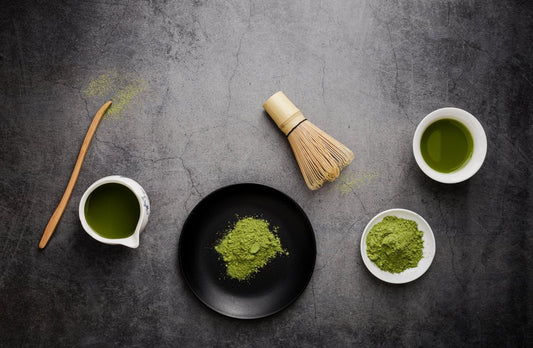Meet the Microbial Makers of Pu-erh Tea
Pu-erh tea, or pu'er tea, has roots in China's Yunnan province and stands out for its unique fermentation process. The complexity of this process involves various microbial organisms that transform the tea's flavour and nutritional profile. In this blog, we delve into the microscopic world that crafts pu-erh tea's distinctiveness.
1. The Essence of Pu-erh: What Sets It Apart
Pu-erh tea comes from the Camellia Sinensis plant, cultivated in Yunnan province. What distinguishes this tea is its specialized fermentation process, involving both bacterial and fungal microbes, and aging over several years, leading to a flavour and aroma unlike any other tea.
2. The Little Helpers: Microbial Friends in Pu-erh Tea
Bacteria and fungi, mainly from the genera Bacillus, Aspergillus, and Penicillium, are the star players in pu-erh tea's fermentation. These microbes break down polyphenols in the tea leaves, transforming them into other compounds that contribute to the tea’s unique flavour and aroma.
3. The Art of Aging: Understanding Fermentation
The fermentation in pu-erh tea is no short-term affair. After initial withering and heating, the leaves are piled to encourage microbial growth. With periodic turning and moistening, the fermentation can last from months to several years, culminating in the desired complex flavour profile.
4. Health in a Cup: Nutritional Boons of Pu-erh Tea
Thanks to its fermentation process, pu-erh tea is rich in antioxidants like catechins and theaflavins, which combat inflammation and oxidative stress. It also offers probiotics and prebiotics to improve digestive health, along with polyphenols that promote heart health by lowering cholesterol.
5. The Right Sip: How to Enjoy Pu-erh Tea
The complexity of pu-erh tea is best enjoyed without additives. Multiple steepings can reveal its multifaceted flavour. Traditionally served in small cups, pu-erh tea is often consumed post-meal to aid digestion.
A Journey Through Pu-erh’s Microbial Landscape
Pu-erh tea is more than just a beverage; it's a microbial masterpiece with a complex fermentation process that enriches its flavour and health benefits. Understanding this process can deepen your appreciation for this unique tea, making it a must-try for any tea lover or health enthusiast.




